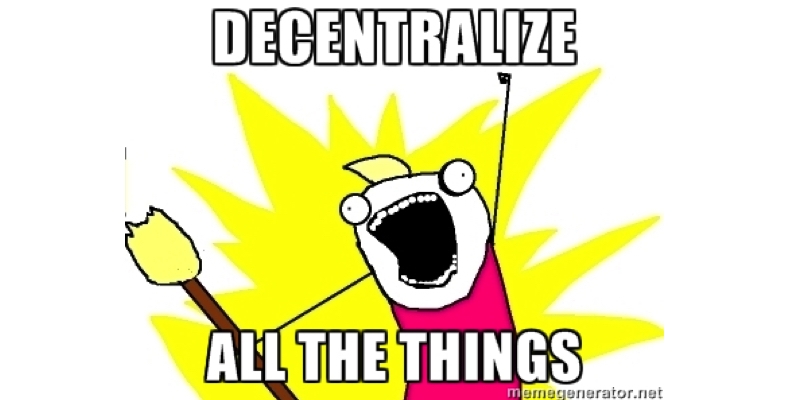I’m a big fan of decentralization. It is the key ingredient that makes me excited about technologies like the Internet and Bitcoin, and it also is why I’m not a fan of big government solutions to just about anything. I believe that decentralization allows the best people to be put to the best use in ways that are best for us. Having central control usually leads to inefficiencies, incompetence, and corruption.
But I’m also a member of the Catholic Church, probably the most centralized organization on the planet. Recently, there has been talk of the Pope wanting to decentralize the Church in some aspects, leaving more decision-making to National Bishops’ Conferences or even individual bishops. With my preference for decentralization, one might assume that I would be in favor of this. Well, yes and no.
A lot of people don’t realize that within the Catholic Church there are actually over 20 distinct churches. All of them, except one, are generally classified as “Eastern Catholic churches” and, at least in theory, are able to self-govern in many ways. However, the one exception is the Latin, or Roman, church, which makes up over 97% of all Catholics in the world. So although in theory there is already some decentralization within the Church, in practice it doesn’t really exist.
But the witness of the Eastern Catholic churches (which mostly originated with Eastern Orthodox churches) is an important one, for it shows that a more decentralized form of church governance is at least possible while maintaining doctrinal purity.
Personally, I am attracted to the Eastern form of governance, and would like to see in some ways that form influence how the Roman Catholic Church operates. I have never liked the view that bishops are just local representatives of the Pope – basically middle-managers whose sole task is to follow directives from Rome. Instead, bishops should be regarded as the true head of their local church (diocese), with almost-absolute power over administrative and disciplinary measures in their church. I think this model is more in keeping with early Church practices, and is theologically more sound.
Yet this decentralization can only go so far before the Universal Church is no longer truly universal. There must be a unifying core of teachings and beliefs that keeps all the local churches together. And this is where the Pope comes in. His job is to maintain the teachings of the Church as they have been handed on since the time of Christ. He does not invent new teachings, nor does he have the power to change them. He is a steward of the King, not the King himself. But the papacy is vital to a unified Church, for it is the unifying factor that all local churches must be in communion with.
I’m also skeptical of decentralization of the Church because of the motives of some of those who are pushing for it. Are they wanting to cut down on bureaucracy? Or make the Gospel more attractive to their local cultures? Or do they just want to be able to shrug off sin so they will be liked at all the right parties, and still be able to collect the Church Tax? (I’m looking at you, German bishops). Is the call for decentralization to draw the culture to the Church, or is it to make the Church more like the prevailing culture? It seems to me that the answer is the latter.
But doesn’t centralization in the Church lead to inefficiencies, incompetence, and corruption, as it does everywhere else? Well, yes, it does. Anyone with even a slight knowledge of Church history (and Church present) sees this clearly. Yet the difference is that the Church does have the protection of the Holy Spirit, so that even when things look grim (as they often do in this fallen world), we can be assured that the gates of hell will not prevail against the Church. The Church can be inefficient, incompetent and even corrupt, but what it can’t be is unfaithful to the Deposit of Faith handed on to us from Christ and the apostles. Any decentralization which would put that Deposit in question should be rejected as contrary to the Gospel.
In the end, I’m a strong proponent of decentralization when it comes to politics, finances, and other purely human endeavors. But when it comes to the divine teachings of the Catholic Church, I’ll take my centralization even with all its problems, thank you very much.


1 Comment
Hi Eric! Too much chit chat, articles and editorials too quick to lay blame at the feet of Pope Francis (e.g. Westen @LifeSiteNews) and too little trust in Divine Providence and serious logical pondering (as you do here). Your take is, I believe, a good logical approach to the issue and pretty much sums up how I see it too. Thanks, Eric!
Comments are closed.